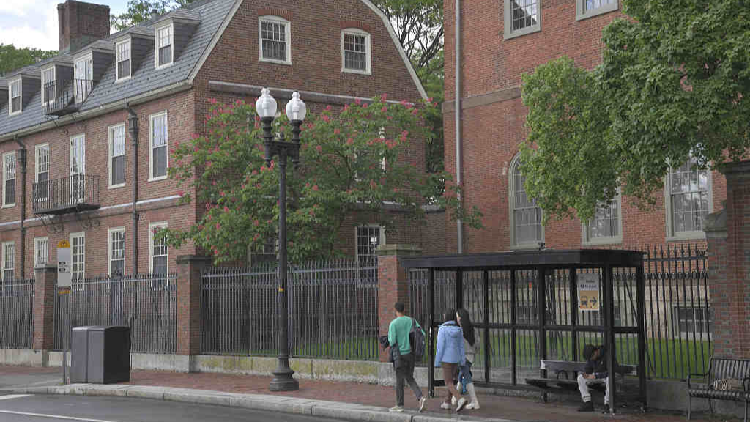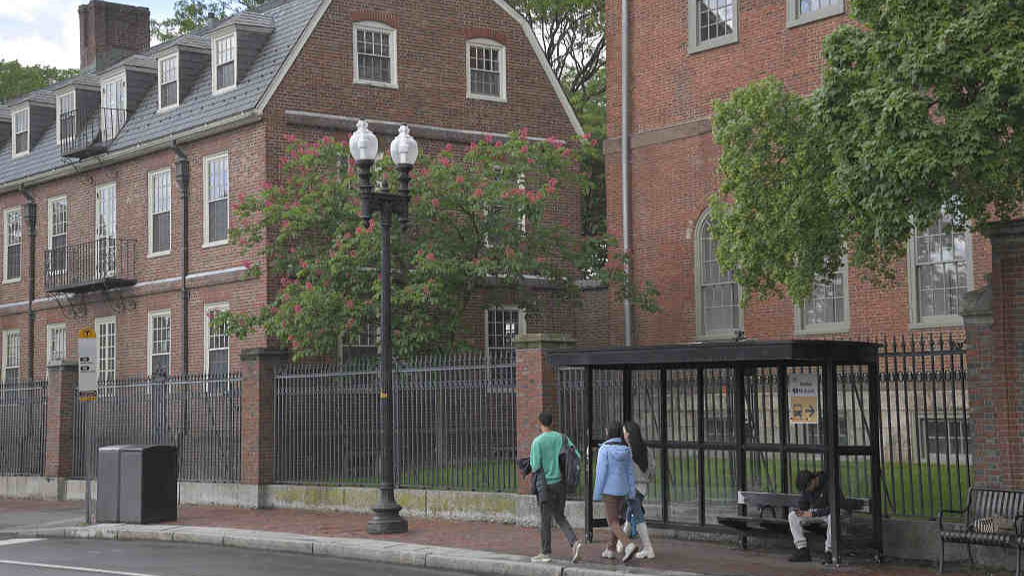Trump Threatens to Withdraw $3 Billion in Grants from Harvard Amid Controversy
President Trump announces plan to reallocate $3 billion in federal grants from Harvard to nationwide trade schools, fueling his ongoing battle with the elite university.


U.S. President Donald Trump escalated his confrontation with Harvard University on Monday, publicly threatening to redirect $3 billion in federal grants earmarked for the institution to trade schools across the nation. Describing Harvard as “very antisemitic,” Trump declared on social media, “What a great investment that would be for the USA, and so badly needed!!!” His comments signal a significant potential shift in federal education funding and reflect growing tensions between his administration and elite universities.
The administration has already taken considerable punitive measures against Harvard, including freezing research funding—more than $2.6 billion in total—and blocking the university’s ability to enroll new international students. These unprecedented actions are part of a larger effort by the White House to pressure colleges to implement stricter policies regarding campus antisemitism, positioning Harvard at the center of this campaign.
Trump’s approach has drawn criticism from both academic experts and civil rights advocates, who argue that the administration's focus on alleged antisemitism at elite universities is deeply intertwined with a broader challenge to what Trump perceives as liberal ideological dominance in higher education. Many within the administration view elite institutions like Harvard as “bastions of political liberalism” that, under the banner of academic freedom, allegedly foster hostility toward conservative ideas.
The administration’s actions go beyond financial penalties. Trump has demanded Harvard provide lists of its foreign students to determine, in his words, “how many radicalized lunatics, troublemakers all, should not be let back into our Country.” In a recent message posted to his Truth Social platform, he criticized Harvard for being “very slow in the presentation of these documents, and probably for good reason.” This demand has raised alarm among privacy advocates and university officials alike.
According to data published by Harvard, international students account for 27 percent of the university’s total population—a figure lower than Trump’s public claim of 31 percent. It is also unclear why the administration seeks access to this information, as all foreign students must already be vetted through U.S. visa processes before entering the country for academic purposes. The sudden scrutiny has left many international students fearful and uncertain about their status, with some questioning whether they can safely remain in the U.S. or return after visiting home.
In response to the administration’s efforts, Harvard filed a lawsuit characterizing the barring of international students as a “blatant violation” of both legal protections and free speech rights. A federal judge has since issued a temporary restraining order, blocking the government’s attempt to strip Harvard of its certification to enroll students from abroad, pending further review.
Higher education experts warn that the administration’s moves threaten to politicize the university sector and inflict long-term damage on one of America’s most vital assets. Some believe that targeting Harvard sends a chilling message to international applicants and risks eroding the global stature and competitiveness of America's educational institutions. “These actions may seem aimed at hindering others, but in reality, they are closing the door on America’s own future development,” said Diao Daming, a professor at the School of International Studies at Renmin University.
With the debate still intensifying, the outcome of this confrontation could set a precedent for the relationship between the federal government and leading universities for years to come. As policymakers, educators, and students grapple with the uncertainty, concerns linger over the consequences for American society and the nation’s standing as a destination for global talent.




